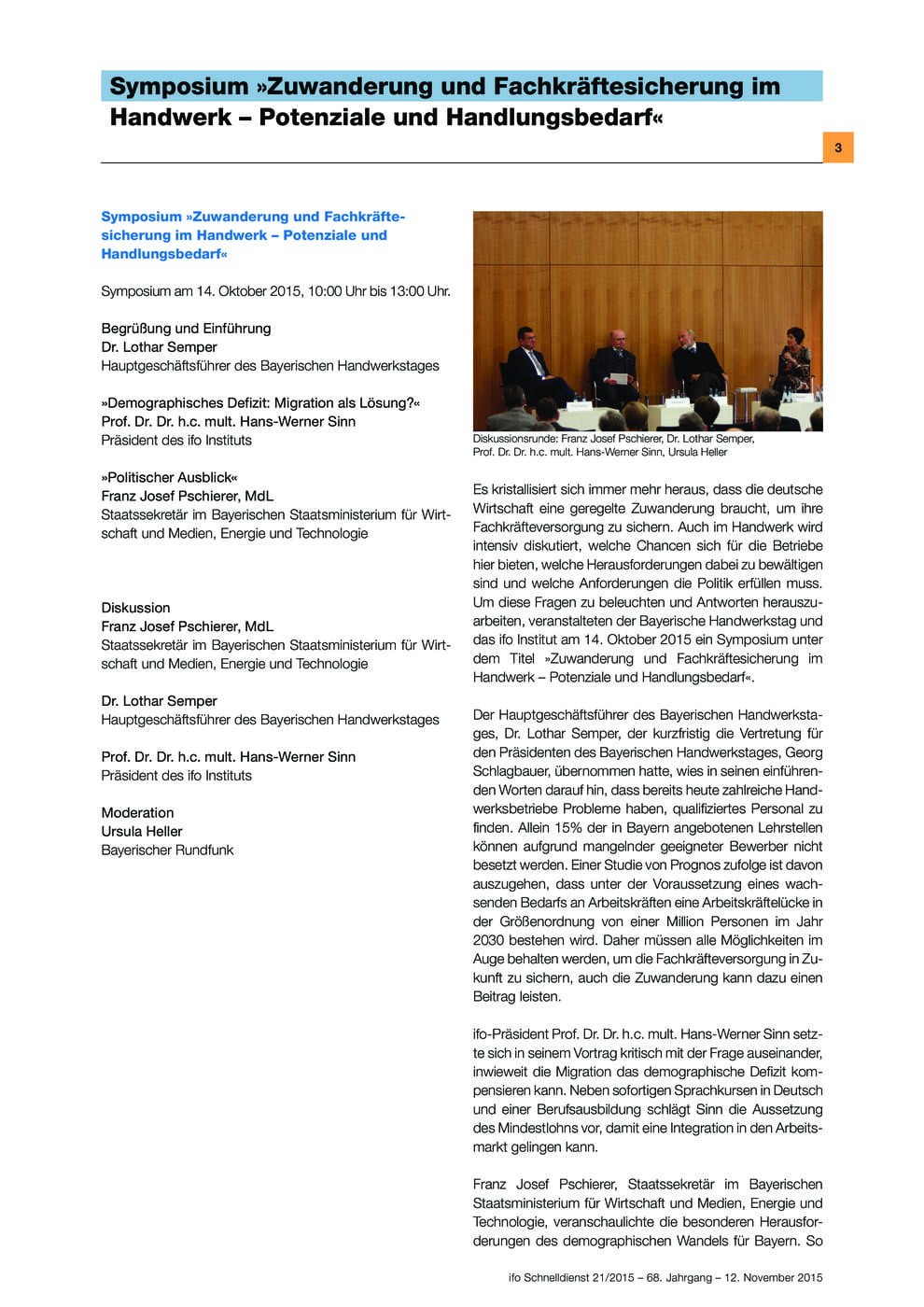Immigration and Securing Skilled Workers in Manual Trades – Potential and the Need for Action
ifo Institut, München, 2015
ifo Schnelldienst, 2015, 68, Nr. 21, 03-11

It is becoming increasingly clear that the German economy requires regulated immigration to ensure its skilled labour supply. There are also intense debates in trade over the opportunities offered for companies, the challenges involved and the demands that must be fulfilled by policy. To explore these questions and develop answers to them, the Bayerische Handwerkstag (Bavarian Association of Trade Crafts) and the Ifo Institute organized a symposium entitled: “Immigration and securing skilled workers in manual trades – potential and the need for action” held on 14 October 2015. In his introductory speech the Director of the Bayerischen Handwerkstag, Dr. Lothar Semper, who stepped in at short notice to represent the Association’s President Georg Schlagbauer, pointed out that several trade companies already have problems finding qualified staff. 15% of the apprenticeship positions in Bavaria cannot be filled at present due to a lack of suitable applicants. A study by Prognos forecasts that there will be a staff shortfall of a million persons by 2030, should demand for staff continue to increase at its present rate. That is why all opportunities for securing skilled workers need to be considered, and immigration can also make a contribution. In his speech Ifo President Prof. Hans-Werner Sinn critically examined the extent to which migration can compensate for the demographic deficit. In addition to immediate language courses in German and professional training, Sinn proposed abandoning the minimum wage to facilitate the integration of immigrants into the labour market. Franz Josef Pschierer, State Secretary in the Bavarian State Ministry for Economic Affairs and the Media, Energy and Technology, illustrated the special challenges of demographic change for Bavaria. Total domestic labour potential will not suffice to meet overall staff needs in the long term; with specific shortfalls emerging in special sub-segments, and specifically in engineering, nursing and medical care. In such cases immigration offers opportunities, especially since Bavaria is Germany’s most successful region in terms of integration in education and the workplace. With its family-run companies the trade sector particularly creates an excellent integration structure for young immigrants. But the Free State of Bavaria is also aware of its responsibilities. For this reason the state government, together with Bavarian business and the regional office of the German Federal Agency for Employment, has agreed upon a comprehensive package of measures as part of the agreement for “Integration via education and work” to integrate registered asylum-seekers, as well as tolerated persons with strong prospects of remaining in Germany.